National Runaway Prevention Month partner, Polaris, is leading a data-driven social justice movement to fight sex and labor trafficking. For more than a decade, Polaris has assisted thousands of victims and survivors through the U.S National Human Trafficking Hotline, helping to ensure that countless traffickers have been held accountable, while building the largest known U.S. data set on actual trafficking experiences.
U.S. law defines human trafficking as the use of force, fraud, or coercion to compel a person into commercial sex acts, labor, or services against their will. Inducing a minor into commercial sex is considered human trafficking, regardless of the presence of force, fraud or coercion.
“Traffickers identify and prey upon their victims’ vulnerabilities,” explains Megan Cutter, Director of the National Human Trafficking Hotline. “A person who may be without stable housing and support might be lured by the trafficker’s promise of a safe place to stay, security, and protection. This makes runaway and homeless youth particularly vulnerable to trafficking.”
With the guidance of survivors, Polaris uses their data to improve the way trafficking is identified, understand how victims and survivors are assisted, and determine how communities, businesses and governments can prevent human trafficking by transforming underlying inequities and oppressions that make it possible.
While human trafficking is notoriously underreported, in 2019, Polaris worked on 11,500 cases of human trafficking reported to the National Human Trafficking Hotline. These situations involved 22,326 individual survivors, nearly 4,384 traffickers, and 1,912 suspicious businesses. Polaris’s services connect victims and survivors of sex and labor trafficking with services and supports to get help and stay safe. Specifically, they provide safety planning and emotional support, connections to resources, such as shelters and legal services, and reporting to law enforcement.
“To end trafficking, we need to look at broader societal ills and address where people become vulnerable,” says Ms. Cutter. “The general public can play a role in helping end trafficking by learning what trafficking actually looks like, being aware of their surroundings, and directing potential victims to safe, reliable resources.”
For more information about human trafficking and Polaris’s work, visit PolarisProject.org.





